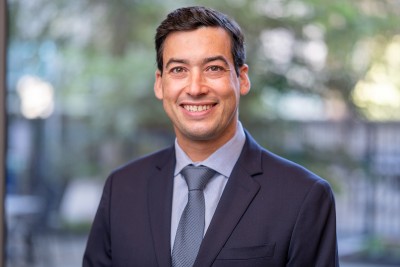
Focal therapy is a prostate cancer treatment for small tumors that are in only one area of the prostate. This treatment is also known as partial gland ablation. Focal therapy is less invasive, meaning it does less harm to healthy issue. It is a safe and effective treatment for prostate cancer.
Focal therapy uses real-time imaging to guide treatment methods that kill small tumors inside the prostate. It offers benefits over other treatments:
- It can kill areas of cancer in the prostate without harming normal prostate tissue and function.
- There can be fewer and less severe side effects than there are with more aggressive treatments, such as surgery and radiation.
- It can often be done as an outpatient procedure.
MSK’s Approach to Focal Therapy
Focal therapy is not for everyone who has prostate cancer. MSK follows strict standards for recommending who should have it. You must first have a thorough evaluation. MSK experts will confirm your tumor is small and localized (in only one part of the body). We also will make sure we can skip or delay more extensive treatment.
Our goal is to treat the area of the prostate gland that has higher-grade cancer. For the parts of the prostate that have low-grade tumors, we use active surveillance.
After focal therapy, we will monitor you closely using magnetic resonance imaging (MRI) and prostate needle biopsy. These tests tell us if the cancer is gone and let us check if it later returns.
MSK is a leader in studying new technology to use in focal therapy for certain prostate cancers. Some of these new methods are available only through our research studies, known as clinical trials.
MSK has led research studies that show successful short-term results in killing tumors. It’s important to learn if focal therapy keeps cancer from coming back. We are now studying the long-term benefits for people who had this treatment.
Focal cryoablation uses a needle-thin probe to freeze a prostate tumor.
The probe delivers a solution around the tumor, freezing it at a very low temperature and killing it. In the past, we used this method to treat the whole prostate gland. Now, we use cryotherapy to kill just the tumor while keeping safe most of the healthy prostate. This treatment is best for tumors that are located either away from the rectum or at the top of the prostate. These locations make it possible to keep nearby healthy tissue safe.
High-intensity focused ultrasound (HIFU) is a prostate cancer treatment that uses the energy of sound waves.
The ultrasound’s sound waves are aimed at the tumor with the help of MRI scans. (It is also called magnetic resonance guided focused ultrasound surgery, or MRgFUS.) This treatment superheats and kills small prostate tumors. We monitor this therapy as it takes place, using the MRI to measure the temperature of the prostate.
MSK has strong experience in treating people with this therapy. We have led research studies, known as clinical trials, that study MRgFUS. The trials have shown that this approach is effective at treating prostate tissue.
The NanoKnife is a tool used in focal therapy that passes an electrical current through the tumor.
The electricity makes very tiny openings (pores) in the tumor’s cells. This kills the cells. We use ultrasound to focus the current around the tumor, keeping nearby healthy tissue safe. MSK has used this technology, which is also called irreversible electroporation, to treat liver and pancreas tumors. We are leading a clinical trial to study whether the NanoKnife is safe and effective at killing prostate cancer cells.
Follow-Up Care
MSK will carefully monitor your progress after focal therapy. You will have exams and prostate-specific antigen (PSA) testing. You also will have MRI testing and prostate needle biopsy. These tests tell us if your treatment was successful or if the cancer has come back. In some cases, we won’t treat low-risk prostate cancer. Instead, we will monitor you through active surveillance.
Please talk with your healthcare provider to see if you can join MSK’s focal therapy clinical trials. They can refer you to MSK experts who will know if these new treatments are right for you.

